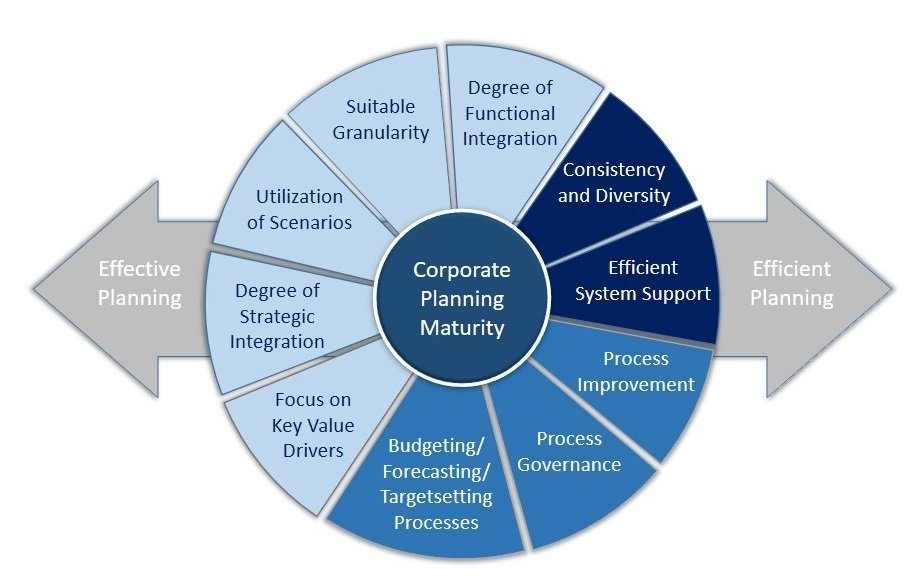In a dynamic competitive environment efficient corporate planning becomes a critical success factor. But more than in operational processes, corporate planning is very hard to evaluate. How efficient is your planning? How do your planning processes compare to best-practices and to other companies? A new study in cooperation with a German university provides answers.
Cycle times, processing costs, scrap rates: In operational processes we have plenty of ways to measure a business process and to judge its efficiency. These measures, if performed repeatedly, are the basis for improvement and optimization.
Administrative processes like corporate planning are much harder to evaluate. How can the quality of planning be measured? How much does budgeting cost? And what value does it produce? Could this value be produced with less effort? As it is so difficult to measure planning, this is often simply not done at all. But without measures it is extremely difficult to systematically improve and optimize.
The university of applied sciences in Rosenheim is currently conducting an international benchmark study in cooperation with Stampa Partners, which focuses on the analysis and optimization of corporate planning processes. The „Benchmark 2017“ study evaluates planning processes with the help of a detailed and structured online survey. Corporate Planning will be analyzed along ten different dimensions, followed by an evaluation using a sophisticated maturity model and a comparison to benchmark companies. Every participating organization will receive an individualized summary of its results as well as an evaluation of its planning maturity. A working paper on the digitalization of planning processes will give valuable insights into improvement potentials. It points to concrete options on how to re-engineer traditional structures and how to transform these into effective and efficient processes.
Participation in Benchmark 2017 is open for companies of all industries and sizes. Organizations can benefit independent of their current professionalism in planning and independent of the software tools that are currently used. All data are handled confidentially within the supervisory university. Individual results are anonymized before they flow into the overall benchmark.
Participation in Benchmark 2017 is open for companies of all industries and sizes. Organizations can benefit independent of their current professionalism in planning and independent of the software tools that are currently used. All data are handled confidentially within the supervisory university. Individual results are anonymized before they flow into the overall benchmark.

By Andreas Krüger